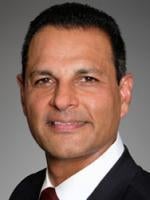Last week, a split Ninth Circuit panel in In re Hyundai and Kia Fuel Economy Litigation[1]vacated the certification of a nationwide class for settlement purposes because the district court failed to address choice-of-law issues and the variations in the relevant state laws, and also improperly “presumed” reliance on allegedly “misleading advertising.” The case demonstrates the significant obstacles to certifying a nationwide class. Judge Sandra Ikuta’s majority opinion, joined by Judge Andrew Kleinfeld, also emphasizes the duty to conduct a “rigorous analysis” into whether a proposed class meets Rule 23’s requirements before granting certification, even in the context of certifying a class for settlement purposes.
The case arises out of an EPA investigation into Hyundai and Kia’s representations regarding the fuel efficiency of certain 2011, 2012, and 2013 car models.[2] After the EPA began its investigation, a number of plaintiffs filed a class action in California state court, seeking to represent a nationwide class of car purchasers who were allegedly misled by defendants’ fuel efficiency marketing. Plaintiffs asserted claims under common law and California’s statutory consumer protection laws.[3]
The car manufacturer defendants removed the case to federal court based on the Class Action Fairness Act and later opposed class certification, arguing that the variations in state consumer protection laws precluded a finding of predominance under Rule 23(b)(3).[4] After a slew of follow-on lawsuits were filed across the country, which the MDL panel then consolidated before Judge George H. Wu of the Central District of California, the parties informed the district court that they had reached a class settlement on a nationwide basis.[5]
In preliminarily approving the class settlement, Judge Wu certified a nationwide class of owners of more than 75 models of Hyundai and Kia cars (including owners who purchased their vehicles new and used). He ruled that a choice-of-law analysis was not required when a case is settled on a class basis and that any concerns about state-law variations could be addressed in the context of the overall Rule 23(e) fairness hearing.[6] A number of objectors—mainly named plaintiffs in certain follow-on lawsuits that were incorporated into the MDL[7]—opposed the settlement. Nevertheless, at the Rule 23(e) hearing, Judge Wu granted final approval of the estimated $210 million class settlement, finding it to be fair, reasonable, and adequate.[8]
The objectors appealed and the Ninth Circuit reversed the certification order. Relying on its earlier decision in Mazza v. Am. Honda Motor Co.,[9] the court held that the district court committed legal error by failing to consider California choice-of-law rules simply because there was a settlement by the named parties.[10] The majority emphasized that a “rigorous analysis” was required and that under a proper analysis, “variations in state law may swamp any common issues and defeat predominance.”[11]
The Ninth Circuit went on to hold that, in certifying the class, the district court improperly “presumed” reliance on the alleged misrepresentation.[12] The court cautioned that a presumption of reliance—which itself can be rebutted—is only permissible when the relevant class is “defined in such a way as to include only members who were exposed to advertising that is alleged to be materially misleading.”[13] To justify a classwide presumption of reliance, the named plaintiffs needed to demonstrate a massive, prolonged advertising campaign where there would be “little doubt that almost every class member had been exposed to defendants’ misleading statements.”[14] Here, such evidence was lacking. The district court failed to cite any and the Ninth Circuit noted that many of the absent class members purchased used vehicles, and thus were unlikely to have been exposed to the allegedly deceptive advertising.[15]
Despite reversing the district court on multiple grounds, the Ninth Circuit still held open the possibility that a class could be properly certified for settlement on remand.
Judge Jacqueline Nguyen’s dissent criticized her colleagues for striking what she described as “a major blow to multistate class actions.”[16] According to Judge Nguyen, the majority’s predominance analysis flipped the burden of proof applied in California to the choice-of-law analysis, by requiring the proponent of California law to prove that California law should be applied to all class members’ claims rather than requiring the proponent of foreign law to carry the burden.[17] The dissent argued that this violated the Erie Doctrineand created a split with other circuits.[18] Judge Nguyen similarly disagreed with the majority’s interpretation of California law on proving reliance in consumer protection cases, asserting that the plaintiffs would not otherwise be required to prove individualized reliance.[19]
In re Hyundai highlights the potential challenges posed by nationwide classes given the Rule 23(b)(3) predominance requirement for certification, even in the context of a settlement class. How parties address this issue in future cases, and whether other courts of appeals considering class settlements will follow suit, is unclear. In the meantime, parties seeking settlement of nationwide class claims in the Ninth Circuit should consider how best to address these predominance concerns in light of a district court’s obligation under Rule 23 in scrutinizing certification of proposed settlement classes.
[1] Appeal No. 15-56067, 2018 U.S. App. LEXIS 1626 (Jan. 23, 2018).
[2] Id. at *16.
[3] Id. at *17-18.
[4] Id. at *18-19.
[5] Id. at *22-23.
[6] Id. at *24 n.15, 30.
[7] Id. at *27-29.
[8] Id. at *33.
[9] 666 F.3d 581 (9th Cir. 2012).
[10] 2018 U.S. App. LEXIS 1626, at *34-35.
[11] Id. at *35, 42 (quotation marks and citation omitted).
[12] Id. at *39-42.
[13] Id. at *39 (quotation marks and citation omitted).
[14] Id. at *39, quoting Mazza, 666 F.3d at 596.
[15] Id. at *39-41.
[16] Id. at *47.
[17] Id. at *51-56.
[18] Id. at *56-60 (asserting conflict with Sullivan v. DB Investments, Inc., 667 F.3d 273 (3d Cir. 2011), and In re Mex. Money Transfer Litig., 267 F.3d 743 (7th Cir. 2001)).
[19] Id. at *65.






 />i
/>i

